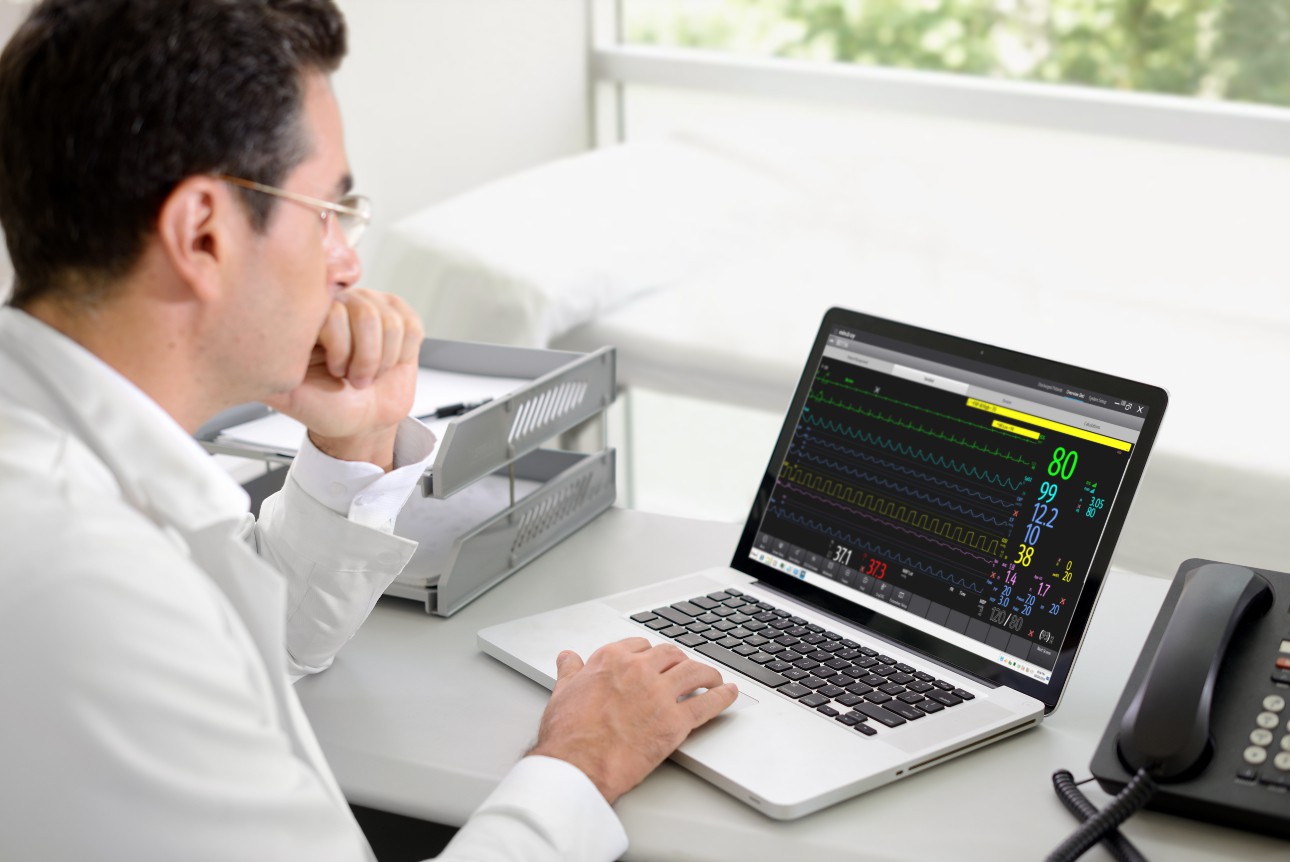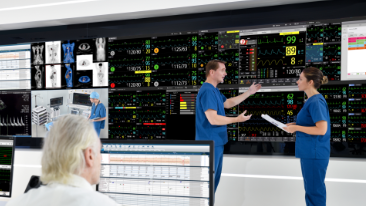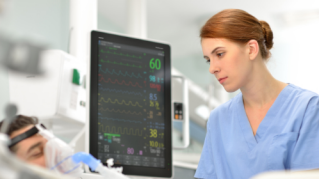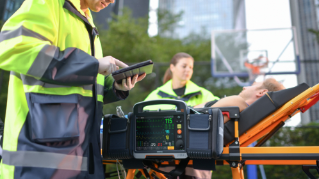Mr. Harish Mohan
A.G.M - Supply Chain,
Biomedical Engineering,
Apollo Medics Hospital, Lucknow
Smart is the latest mantra for new-age hospitals
When a hospital relies on optimized and automated processes built on an ICT environment of interconnected assets, particularly based on IoT, to improve existing patient care procedures and introduce new capabilities, it transforms itself to being a smart hospital.
Being smart has turned out to be one of the key parameter in patient care, with hospitals across the country looking to think and execute smart solutions as they strive to help people with ailments get back to their normal routine. Smart hospitals have evolved over the years, transforming the entire patient care scenario into a digitally driven space that promises zero error and high levels of precision in diagnostics and treatment.
.jpg)
What makes a hospital smart?
The way a hospital deploys digital tools to optimize and put in place top notch clinical processes and management systems through digital networking of interconnected assets could make it smart. When a hospital turns smart, the services provided in terms of patient care achieve better heights and efficiency in overall operations.
When a hospital relies much on optimized and automated processes built on an information and communication technology environment of interconnected assets, particularly based on Internet of Things (IoT), to improve existing patient care procedures and introduce new capabilities, it transforms itself to being a smart hospital. Ask Mr. Harish Mohan, the AGM, Supply chain, Biomedical Engineering, Projects & Operations, at Apollo Medics Super Specialty Hospitals in Lucknow, and he elaborates on how smart a hospital can be.
Till the recent past, hospitals had been transferring data of patients to specialist doctors, clinicians, and surgeons the traditional way. With everything done manually, data transfer was also through files carried manually by staff designated to do just that. The time taken, the chances of misplacement, error in data rendering and the need for all key individuals to be present at one place had made it a tedious affair
Digital data transmission is the need of the hour
With the advent of technology, internet and the IoT regime, things have taken a welcome turn. Digital turned out to be the key word. It became possible for data from a patient to be easily transmitted from one place to another. This data transmission ensures that the clinical expert, physician, or surgeon with whom the data relevant in the processes of treatment of the patient lies can access it from any remote location even as monitoring the patient from close quarters. Healthcare professionals find it immensely helpful in taking a call on the treatment procedures based on the data that boast high precision, and zero error.
Patient outcomes are the most significant in any treatment process, and use of such the error-free, digitally transmitted data that has all the illness and treatment history of patients admitted in the hospital wards or intensive care comes handy in helping them walk healthy and lead their daily lives with no cause for anxiety.
A quick look at the objectives achieved by hospitals when they turn smart would throw up laudable results. Smart hospitals always make it possible to ensure correct management of patients’ data, helps in remote management, allow clinicians, physicians, and surgeons in dealing with precise and seamless patient flow. Further, cyber resilience comes as a critical aspect on this terrain.
Decisions taken by smart devices are based on analysis of collected data. Such clinical and administrative patient data, such as health records, test results, contact details, data on financial, organizational, and other hospital data, clinical trial reports, data intended for secondary use, staff data, tracking logs and vendor details come as critical and a smart environment ensures all these are in place, at the right moment in right hands.
Intensive care mechanisms often define one of the many capabilities of a smart hospital. This is in terms of how they play a role in treatment of patients admitted to the ICUs. As it is imperative that critical patients need continuous monitoring and need to be accorded treatment at the right time, a Smart ICU would immensely smart intervention of technology driven processes. Doctors attending to patients who are critical and are lodged in the ICU, split second decisions would come as significant in saving lives, many a time. When an ICU environment is Smart, it can go a long way in helping the doctor and his support staff in saving the patients.
That brings to the table the question of how smart a Smart ICU could be. Smart ICUs ride the concept of placing a critically ill patient at the center of all digital interconnections. In simpler terms, Smart ICUs help in making sure that all technology mechanism work for the patient, so that the best care is accorded without the need to modify the delivery of care based on the available systems. That also means that Smart ICUs should have the capability to interconnect all data and monitoring systems within the same software, with language interpretation and analytics. The system must also be able to store data, use remote storage system, offering autonomous patient monitoring.
When it comes to Smart ICUs, it is imperative that analytics and interpretations come as prime focus areas. The digital network connecting the command center and the ICUs need to be able to historically store all data with respect to every patient admitted so that doctors who work different shifts will be able to analyze them seamlessly. Further, an important aspect that a Smart ICU needs to be that all aspects connected with the patient in intensive care can be accessed remotely by the clinician.
When a hospital and its ICU environment turn smart, enhanced practices in monitoring, early identification and treatment of critical illnesses, better coordination of care and facilitating the hospital management in providing better care to the patient, and bettering the patient outcome, can also be ensured.
The clinicians, doctors, surgeons, nursing staff and the paramedics also can rest assured that no data is ever tampered with, so that an informed call on the treatment process can be adopted.

Making an ICU Smart
What makes an ICU smart? There are a variety of aspects in delivery of care that a smart ICU can ensure. And they include elimination of harm, engaging all critical care professionals, patients, and families, and increasing the proficiency and personalized care through the use of new age technology. Going smart would make hospital and their ICUs make sure that high-end patient monitoring in areas such as gauging blood pressure, SpO2 saturation, cardiac and neuro parameters, and scoring and sepsis protocols are done. With all equipment in the connected network, doctors will also be able to access data from the patient right through the central monitoring system, even when they are at any remote location. The digital mechanism also can allow doctors to see the patient via a webcam equipped at the central monitoring system.
Turning Smart has turned out to be imperative for hospitals in the modern age. Treatment procedures can be successful when a patient walks out of the hospital healthy and ready to continue with his daily routine. When treating ailments take the tech driven route, patient outcomes see a betterment. Smart hospitals would be the next big thing in healthcare, and in the context of better patient outcomes, the new transformation comes as a welcome leap.






